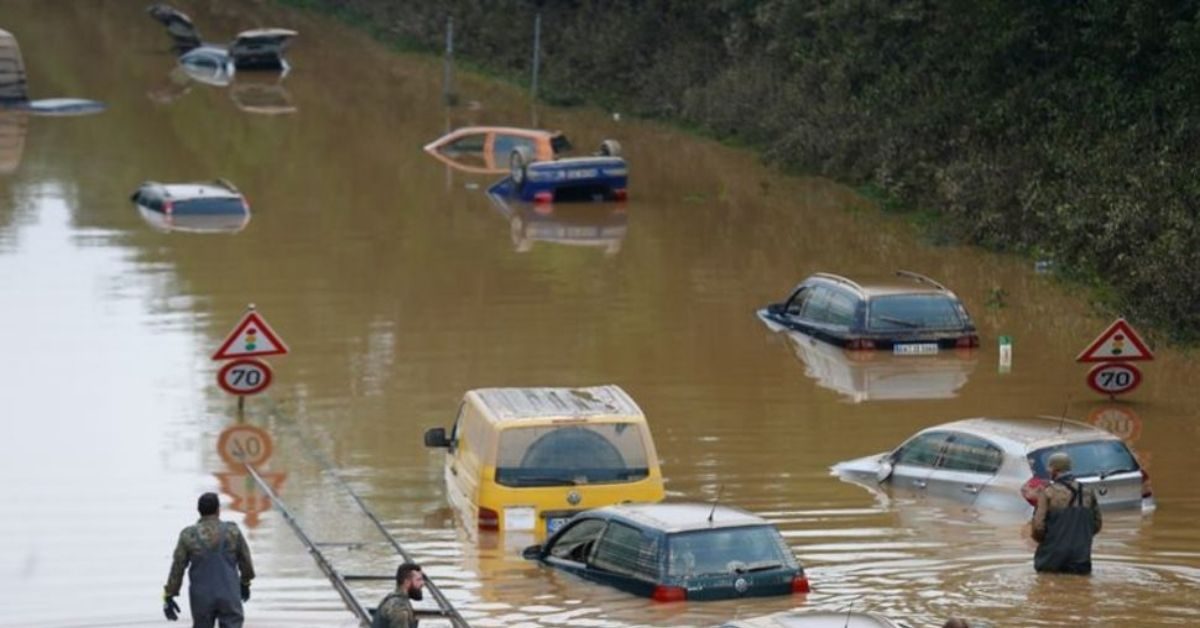A new worldwide wave of Covid-19. Natural disasters in China and Germany. A cyber attack targeting key South African ports.
Events have conspired to drive global supply chains towards breaking point, threatening the fragile flow of raw materials, parts and consumer goods, according to companies, economists and shipping specialists, reports Reuters.
The Delta variant of the coronavirus has devastated parts of Asia and prompted many nations to cut off land access for sailors. That has left captains unable to rotate weary crews and about 100,000 seafarers stranded at sea beyond their stints in a flashback to 2020 and the height of lockdowns.
“We’re no longer on the cusp of a second crew change crisis, we’re in one,” Guy Platten, secretary-general of the International Chamber of Shipping, told Reuters.
“This is a perilous moment for global supply chains.”
Given ships transport around 90% of the world’s trade, the crew crisis is disrupting the supply of everything from oil and iron ore to food and electronics.
German container line Hapag Lloyd described the situation as “extremely challenging”.
“Vessel capacity is very tight, empty containers are scarce and the operational situation at certain ports and terminals is not really improving,” it said. “We expect this to last probably into the fourth quarter – but it is very difficult to predict.”
Bangladesh is also feeling the heat of the global container crisis. But experts are saying that the situation should improve soon.
Insiders said that the stagnation of many European ports ended amid the pace of the lifestyle returning to normal, which led to a decrease in the congestion in those ports.
“The goods are being delivered from the mother vessels, which have been waiting for delivery for a long time. As a result, the vessels are returning with empty containers,” they also said.
Khairul Alam Suzan, vice president of Bangladesh Freight Forwarders Association (BAFFA), said: “Garments and other industries are closed in our country due to Eid holidays and lockdowns, that’s why they are sending fewer products to the port.”
Since this is a global problem, its solution will not be so fast, it will gradually return to normalcy, he added.
“A number of cargoes have left the port before Eid and a significant number of cargoes will leave the port during the lockdown. This may improve the situation.” He also said.
He further said that there is no doubt about the ongoing problem being global. However, the port also had the opportunity to contribute to reducing the manifestation of this problem.
“We need to make more accurate and effective plans for the port. Export volume from our country is growing significantly, industries are getting much more orders. But if the port is not modern, such problems will remain throughout the year,” Suzan said.
In this case, modernization of ports, construction of the bay terminal, has become essential, he suggested.
Earlier, exports from Bangladesh have been facing unexpected delays for the last couple of months owing to the global container crisis.
According to Chittagong port officials, this has been partly brought on by the excess congestion in many Asian transhipment ports, especially Singapore, Port Klang in Malaysia, and Colombo in Sri Lanka.
This means containers that took goods for export to foreign countries have yet to return for another shipment.
As a result, the inland container depots (ICDs) in Bangladesh are failing to transfer the products to the ports due to the acute shortage of containers. This problem has been amplified by delays in getting space on mother vessels in the transhipment ports, said port insiders.
ICD authorities said that there are no available bookings in the mother vessels for Europe and America from the three major transhipment ports due to the congestion of ships in the ports of those export destinations.
Meanwhile, the Chinese flooding is curtailing the transport of coal from mining regions such as Inner Mongolia and Shanxi, the state planner says, just as power plants need fuel to meet peak summer demand.
In Germany, road transportation of goods has slowed significantly. In the week of July 11, as the disaster unfolded, the volume of late shipments rose by 15% from the week before, according to data from supply-chain tracking platform FourKites.
Nick Klein, VP for sales and marketing in the Midwest with Taiwan freight and logistics company OEC Group, said companies were scrambling to free goods stacked up in Asia and in US ports due to a confluence of crises.
Source: Dhaka Tribune







